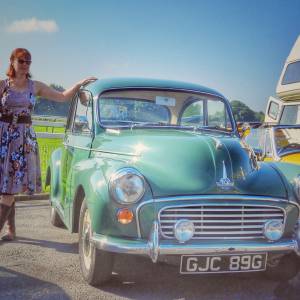Palestine, Wednesday 7th November, 1917
We are hard on the heels of the Turk. Gaza has fallen, we have taken Be'er Sheva and are now on the way to Sheria. There are wells at Sheria, and we are very thirsty!
......
Petulantly through the twilight half-spent bullets whine out their last breath overhead. Nobody cares; we are too fagged out to heed them. Dropping our packs, we unload the mules and feed the poor brutes a mouthful of corn.
We stretch our backs on the warm sand. Our aching backs! Oh, for a little green apple to quench this blistering thirst! Our spirits are low with fatigue and thirst and dirt. This hopeless, unending misery, this madness, this ultimate futility!
After 4 hours sleep, the men are roused, given a tot of rum and marched on.
We shall know nothing. We batten on rumours. Rumours! And are led like lambs to the slaughter. My blood boils. Are we such cowards we may not be told?
.......
Then out of the gloom and confused medley of men emerges the Colonel ... He is lean and tall; his face is red. He carries his head as though his neck was stiff. His gait seems unsteady. He waves a cane in his hand, and, in the crook of his other arm, he hugs a football!
" Twenty-second Queen's!" he bellows. " It's your turn now to cover yourselves with glory! Follow me! "
He leads us along the wadi, every gun in creation going mad at us .... The colonel gets across, but not so others following; they seem to wilt and crumple up and fade away into the gloom. A murderous fire from concealed machine guns sprays death along that alley .... Rob and I plunge into the abyss. I hear a cry and Rob sinks into the dust ...
" Fix bayonets! " yells the colonel. And the shining things leap from the scabbards and flash in the light as they click on standards. They seem alive and joyous: they turn us into fiends, thirsty for slaughter. We scramble out of the wadi.
" Charge! "
The hail of lead! We greet in with a blood-curdling shout, ripping our throats; and as surely as I have eyes, there's the colonel driving ahead, taking the hill at a bound, and kicking the football!
The assault goes on for a further 3 pages, until ....
Beyond - across the open - men run for their lives; and I, breathless, land up against the smoking nozzle of an artillery field gun, the point of my bayonet stuck into the tunic button of a burley Austrian bombardier .... I stand panting before my prisoner .... " Mercy, Johnny, " he says quietly dropping a sooty hand and holding it out to me. " You brave feller. You haf face all bloody! Have mercy! ".
He smiles. He looks a decent sort. His glasses and ginger hair remind me of Baker ( a fellow soldier, a Welshman, lost in the recent push )... It is touch and go with the Austrian. Blood for blood! He smiles ... I cannot kill him ...
Next to me on my right, little Sid Avery has a similar problem confronting him, and quickly he solves it, as well as mine:
" Cigarettes ... Or yer life! " puffs Sid.
These paragraphs are extracts from the writing of Private William G. Johnson. He joined London Rifle Brigade, November 1915, aged 23. He volunteered for transfer to 60th ( London ) Division for active service.
June 1916 - sent to 2nd Battalion 22nd London Regiment ( Queens )
July 1916 - France, 5 months in trenches
January 1917 - Salonika, 3 months on Vardar Front, 3 months on Doirian Front. Took part in operations against Bulgars.
July 1917 - Palestine. Took part in operations against the Turks, resulting in capture of Gaza, Be'er Shava, the wells at Tel-el-Sheria, Nebi Samwil and Jerusalem.
Also in engagements around Jerico, crossing of the Jordan and the attacks across the Jordan Valley, Moab Mountains, Es Salt and Amman in an attempt to link up with Lawrence of Arabia. Took part in forced marches across Palestine to Jaffa, which ended in the final route of the Turks on September 19th 1918, at Tul Keram, towards Damascus.
True World War I Stories: - Published in 1930. Sixty short narratives by writers of all ranks from private to lieutenant-colonel, but unfortunately only three from the Navy and Royal Air Force. Practically every campaign is mentioned, though of course the vast majority of the incidents are from the Western Front. The narrators are in no case professional writers, and though some ( but by no means all ) lack literary skill, they are far more representative of the British Army, Navy and Air Force, than any professional writer with his overcharged sensibilities and his inevitable reaction to literary influences and conventions. - The words of Cyril Falls, author of ' War Books: A Critical Guide '.
- 1
- 0

Comments
Sign in or get an account to comment.


